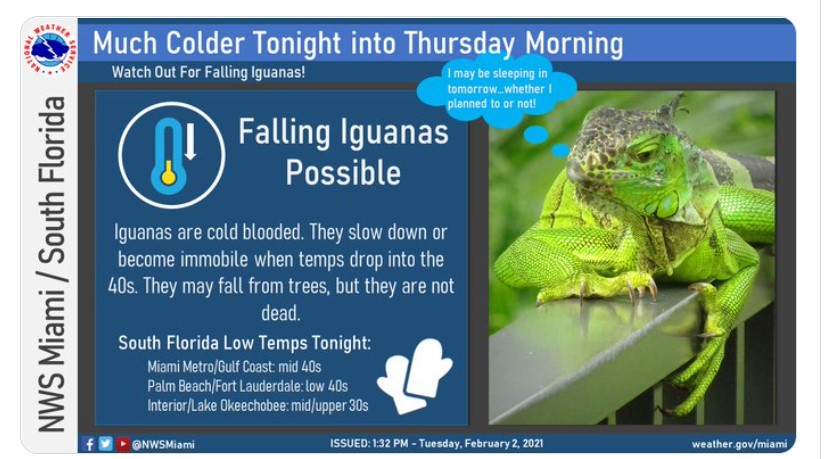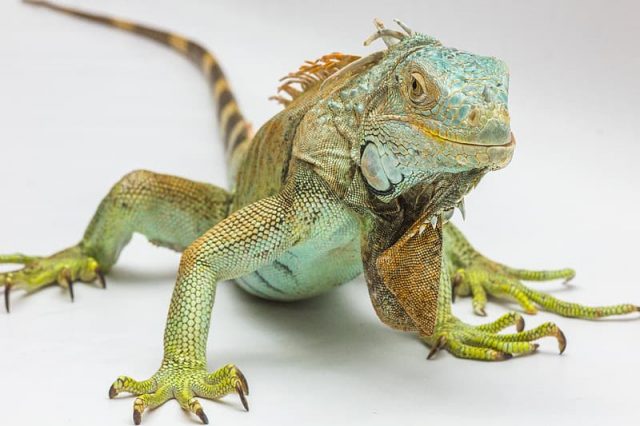
ASHVILLE, Fla. (Jan. 8, 2025) — As a cold front sweeps across the southeastern U.S., residents of Florida have been warned about a potential and unusual hazard: falling iguanas.
A significant temperature drop, with lows expected to dip into the 30s and 40s this week, is causing the cold-blooded reptiles to go into a dormant or cold-stunned state. Green iguanas, which have been introduced to Florida from Central and South America, are not equipped to handle temperatures below 45°F and often lose their grip on tree branches when temperatures drop below their tolerance threshold.
On Jan. 8, many Floridians woke up to temperatures in the low 40s, a dramatic shift from the region’s typical January weather. In inland cities like Orlando and Tampa, temperatures are expected to fall below 45°F, with Orlando reaching a chilly 39°F on Wednesday night and Tampa forecasted to drop to 38°F by Thursday night.
Iguanas Falling from Trees
As the temperature continues to plunge, cold-stunned iguanas may fall from trees where they typically sleep. While the sight of iguanas dropping from branches might seem odd, experts warn it can pose a danger to unsuspecting pedestrians and drivers. Fully grown iguanas can be up to 5 feet long and weigh up to 25 pounds, making them a significant hazard when they fall from a height.
Joe Wasilewski, a conservation biologist, says it’s a phenomenon unique to Florida. “When it gets cold like this, it’s funny to those who aren’t from here to see the news people talking about iguanas falling from trees, but it can and will happen,” Wasilewski said.
Although the iguanas may appear lifeless after falling, experts stress that they are not dead. The reptiles are simply in a dormant state and will revive once temperatures rise back above 50°F. However, prolonged exposure to extreme cold can be fatal for them.
Safety Tips and Prevention
Michael Ronquillo, an iguana removal specialist, advises residents to take precautions during these cold snaps. “Iguanas climb trees to sleep, but once they get too cold, they lose their grip and start falling,” he said. Ronquillo has removed iguanas as large as 6 feet long and weighing 25 pounds, noting that falling iguanas can be dangerous. “Imagine walking your dog and not knowing there are iguanas up there. They can fall on you, your roof, or your car,” he said.
To prevent falling iguanas, Ronquillo recommends wrapping trees to make them difficult for the reptiles to climb and trimming branches away from structures. He also warns against handling cold-stunned iguanas, as they can become defensive once they regain mobility.
Though iguanas are not aggressive toward humans or pets, their droppings can contain salmonella bacteria, adding another reason for caution when encountering the animals.
The cold snap affecting Florida is part of a larger winter storm pushing through the Gulf Coast and Southeast, bringing temperatures up to 25°F below average. Residents are advised to stay aware of the changing weather conditions and prepare for the possibility of falling iguanas as temperatures continue to drop over the next few days.
What’s worse 1 inch of snow on your doorstep or 12 inches of green lizard?











